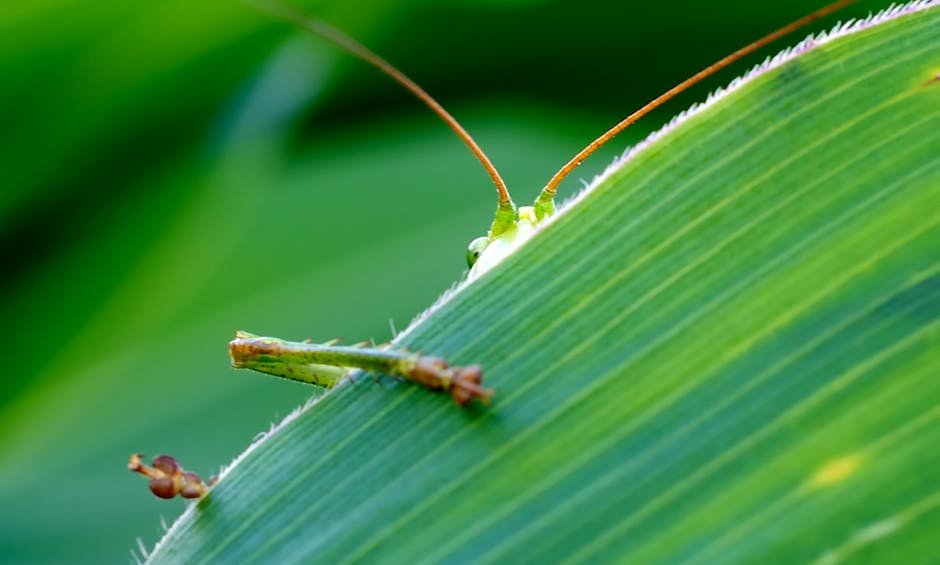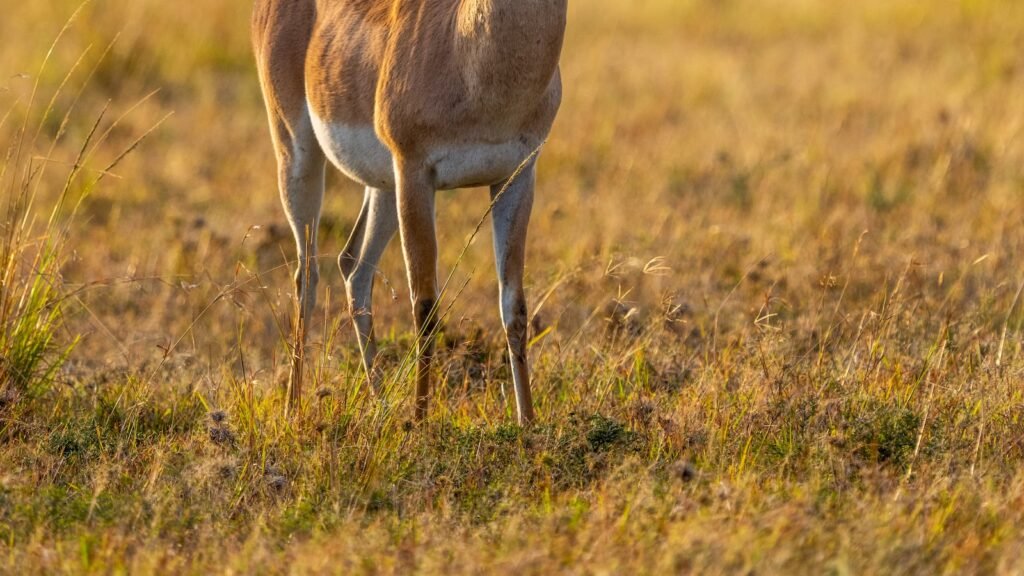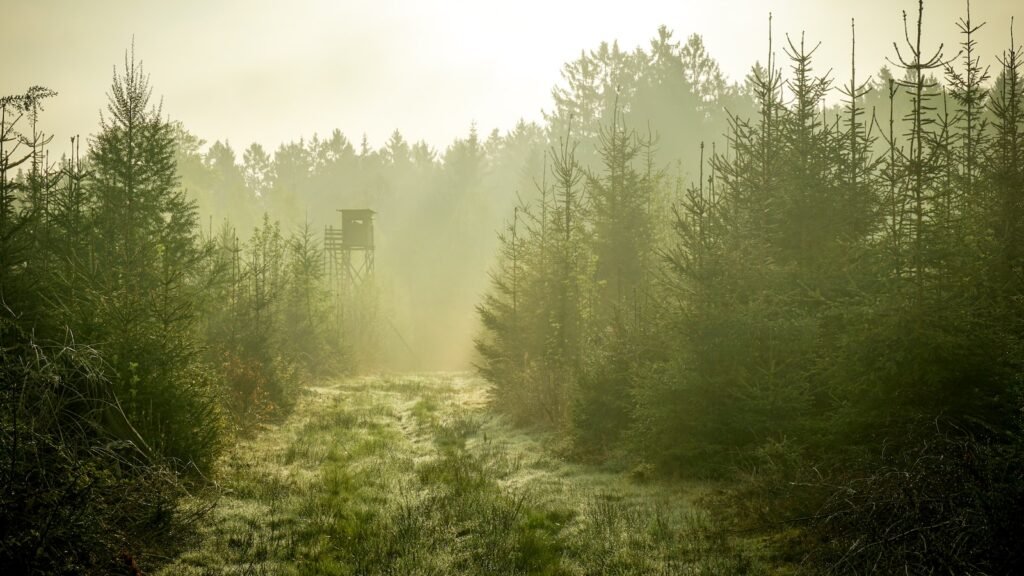Now Reading: The Importance of Local Knowledge in Hunting & Foraging
-
01
The Importance of Local Knowledge in Hunting & Foraging

The Importance of Local Knowledge in Hunting & Foraging
As the first rays of sunlight pierce through the dense foliage, casting a golden hue on the forest floor, a skilled hunter listens intently to the symphony of nature unfolding around them. Every rustle of leaves, every chirp of birds, holds valuable information that could mean the difference between a successful hunt and an empty belly. In a world dominated by technology and convenience, we often overlook the profound significance of local knowledge in the ancient practices of hunting and foraging. Passed down through generations, this intricate web of wisdom and understanding of the land not only ensures survival but also fosters a deep connection between human beings and the natural world. In this article, we delve into the captivating realm of hunting and foraging, unlocking the secrets held by local knowledge and shedding light on why it remains as important today as it was centuries ago.
Table of Contents
- The Land Holds the Secrets: Advantages of Local Knowledge in Hunting & Foraging
- Uncovering Nature’s Hidden Bounty: How Local Knowledge Enhances Hunting & Foraging Skills
- Navigating the Wild with Finesse: The Role of Local Knowledge in Successful Hunting & Foraging
- A Lifelong Tradition: Passing Down Local Knowledge for Sustainable Hunting & Foraging Practices
- Harnessing the Power of Local Wisdom: Tips to Acquire and Apply Indigenous Hunting & Foraging Knowledge
- Q&A
- The Way Forward

The Land Holds the Secrets: Advantages of Local Knowledge in Hunting & Foraging
The land has always held the secrets to survival, especially when it comes to hunting and foraging. Local knowledge is a treasure trove of valuable information, passed down through generations, and deeply rooted in the terrain, seasons, and habits of the wildlife. Here’s why tapping into this wealth of wisdom can give you a distinct advantage:
- Intimate understanding of the environment: Local knowledge affords hunters and foragers an intimate understanding of the natural world around them. Being attuned to the rhythms of the land, the behavior of animals, and the cycles of plants and fungi allows individuals to navigate the wilderness with finesse. From identifying animal tracks to recognizing edible plants, this deep connection with the local environment is a priceless asset.
- Hidden hotspots and feeding grounds: Those familiar with the land’s secrets know precisely where to find animals during different times of the day or year. Through generations of observation and experience, local hunters and foragers uncover the hidden hotspots and feeding grounds that may not be apparent to outsiders. These secret locations can significantly increase the chances of a successful hunt or abundant harvest.
- Traditional techniques and strategies: Each region has its unique set of traditional hunting and foraging techniques that have withstood the test of time. Passed down from one generation to another, these well-honed strategies are tailored to the local ecosystem, enabling individuals to optimize their chances of success. Understanding the nuances of these age-old techniques can provide hunters and foragers with an edge that no amount of modern technology can replicate.
Embracing local knowledge in hunting and foraging not only ensures a deeper connection with nature but also increases the likelihood of a productive and fulfilling experience. So, venture into the wilderness with an open mind, learn from those who have walked these lands before you, and unlock the secrets that the land has to offer.

Uncovering Nature’s Hidden Bounty: How Local Knowledge Enhances Hunting & Foraging Skills
Uncovering Nature’s Hidden Bounty
Exploring the great outdoors can be an exhilarating adventure, made even more rewarding when armed with the valuable knowledge passed down through generations. Local knowledge plays a pivotal role in enhancing hunting and foraging skills, uncovering nature’s hidden bounty.
One of the key ways local knowledge enhances hunting and foraging skills is through the understanding of seasonal patterns and habitats. Those with deep-rooted connections to the land are well aware of the unique migration patterns of animals and the optimal seasons for different types of foraging. This knowledge allows hunters and foragers to be in the right place at the right time, greatly increasing their chances of success.
Additionally, local knowledge provides insight into the specific plants, mushrooms, and other natural resources that are abundant in the area. This knowledge is invaluable when it comes to discovering edible treasures in the wilderness. From identifying wild berries to knowing which mushrooms are safe to consume, local knowledge helps navigate and decode nature’s grocery aisle.
- Identifying tracks and signs:
- Understanding ecosystems and biodiversity:
- Preserving cultural heritage:
Local knowledge equips individuals with the ability to decipher tracks, droppings, and other signs left by animals. It grants them the power to anticipate an animal’s presence and behavior, significantly improving their hunting and foraging capabilities.
With local knowledge, one gains a deeper understanding of how different species interact within the ecosystem. This comprehension aids in understanding which animals rely on specific plants or how plants thrive in certain conditions, allowing for strategic and sustainable hunting and foraging practices.
The transmission of local knowledge also preserves cultural traditions and customs. Passing down hunting and foraging skills from one generation to the next ensures that ancient practices are not forgotten and that local communities stay connected to their heritage.
Ultimately, local knowledge serves as a compass, guiding hunters and foragers through nature’s vast labyrinth and revealing its hidden bounty. It fosters a deep appreciation for the natural world and the interconnectedness of all living things, reaffirming our place within the delicate tapestry of Earth’s ecosystems.
Navigating the Wild with Finesse: The Role of Local Knowledge in Successful Hunting & Foraging
In the vast wilderness, success in hunting and foraging lies not only in strength and skill, but also in the valuable asset of local knowledge. Local knowledge encompasses the deep understanding of the environment, its flora and fauna, and the intricate interplay between them. This knowledge, passed down from one generation to the next, equips individuals with the finesse required to navigate the wild with precision.
One of the key advantages of local knowledge is its ability to identify the specific behaviors and patterns of animals and plants. Through careful observation and intimate familiarity with the land, hunters and foragers armed with local knowledge can anticipate the movements of their prey, knowing where to find them during each season. This enables them to plan their expeditions strategically, increase their chances of successful hunts, and optimize their time spent in the wilderness.
Another significant role of local knowledge is the recognition and utilization of valuable resources that might escape the untrained eye. It unveils hidden treasures in the form of edible plants, healing herbs, and natural resources that can aid survival in remote and challenging environments. With this knowledge, foragers can identify which plants are safe to consume, which roots have medicinal properties, and which materials can be used for crafting tools or building shelters. This intimate familiarity with the local ecosystem enhances self-sufficiency and resilience in the wild.
Therefore, it is evident that local knowledge plays a crucial role in enabling individuals to navigate the wild with finesse. By harnessing the power of this accumulated wisdom, hunters and foragers can tap into nature’s secrets and improve their chances of not only sustenance but also a deeper understanding and connection with the land.
A Lifelong Tradition: Passing Down Local Knowledge for Sustainable Hunting & Foraging Practices
Hunting and foraging have been integral aspects of our local culture for generations, embodying a lifelong tradition that echoes the deep connection between nature and sustainability. Passed down through the ages, the wealth of knowledge surrounding hunting and foraging practices has been nurtured and refined by our ancestors, ensuring the preservation of our delicate ecosystems while sustaining our communities.
Local wisdom emphasizes the importance of sustainable practices, which not only benefit the environment but also guarantee the continued availability of resources for future generations. The knowledge shared from one generation to another encompasses intricate techniques for understanding animal behavior, identifying edible plants, and coexisting harmoniously with our natural surroundings.
Through the art of storytelling and communal exchanges, this invaluable knowledge has thrived within our community. It has been carefully curated into a treasury of local wisdom, passed on orally and ingrained in the hearts of those who listen, leading to a collective understanding of the delicate balance necessary for sustainable hunting and foraging.
By embracing our collective heritage, we can continue to incorporate these sustainable practices into our modern lives. Together, we can transmit this legacy to future generations, weaving their daily lives with the intricate tapestry of our ancestral traditions, fostering a harmonious coexistence between humanity and the natural world.
Key elements of sustainable hunting and foraging practices:
- Respecting Wildlife: Recognizing the intrinsic value of every creature and treating them with utmost respect and empathy.
- Regenerative Actions: Ensuring that our hunting and foraging practices do not deplete natural resources but enable rejuvenation for future harvests.
- Ecological Awareness: Understanding the impact of our actions on the ecosystems we inhabit and actively seeking to minimize any negative effects.
- Knowledge Sharing: Engaging in open communication and sharing our knowledge and experiences with others, fostering a sense of community and collective responsibility.
- Adaptive Practices: Adapting to the changing needs of our environment and utilizing innovative solutions to address new challenges that arise.
Harnessing the Power of Local Wisdom: Tips to Acquire and Apply Indigenous Hunting & Foraging Knowledge
Harnessing the Power of Local Wisdom
Acquiring and applying indigenous hunting and foraging knowledge opens up a world of sustainable and ethical possibilities. With respect to these ancient practices, we can learn valuable lessons from generations past and apply them to our modern lives. Here are a few tips to help you tap into the power of local wisdom:
- Connect and communicate: Building relationships with indigenous communities is key to acquiring their knowledge. Attend local events, participate in cultural exchanges, and respectfully engage with individuals who hold deep insights into hunting and foraging techniques.
- Observe and listen: Patience is the key to unlocking the wealth of indigenous wisdom. Spend time in nature, observe natural patterns, and listen to the stories and experiences elders share. Their oral traditions often hold centuries of accumulated knowledge.
- Respect and reciprocity: Respect for indigenous cultures and traditions is paramount. Ensure that any knowledge you acquire is used ethically and sustainably. Developing a reciprocal relationship by sharing your skills and resources can also strengthen the exchange of wisdom.
By valuing and understanding indigenous hunting and foraging knowledge, we can contribute to the preservation of rich cultural practices while embracing a more sustainable way of living.
Q&A
Why is local knowledge important for hunting and foraging?
Local knowledge is crucial for hunting and foraging because it provides valuable insights into the behavior and patterns of local wildlife and plant life. Through understanding seasonal variations, migration routes, and habitats, hunters and foragers can increase their chances of success.
How does local knowledge enhance safety while hunting and foraging?
Local knowledge helps hunters and foragers identify potential dangers and hazards in the area, such as poisonous plants or predators. It also enables them to navigate the terrain more effectively, minimizing risks and ensuring a safer experience.
What role does local knowledge play in sustainability?
Local knowledge promotes sustainable practices by helping hunters and foragers understand the delicate balance of local ecosystems. They can make informed decisions about which plants and animals to harvest, ensuring the long-term viability of these resources.
Can local knowledge improve the efficiency of hunting and foraging?
Absolutely! Local knowledge allows hunters and foragers to choose the most effective techniques and tools for their specific area. Understanding the behavior and habits of the local game and edible plants can significantly increase efficiency and success rates.
How does local knowledge benefit the wider community?
Local knowledge is often passed down through generations, enriching the community’s collective understanding of the environment. Sharing this knowledge not only helps others develop their skills but also fosters a sense of connection and appreciation for the local ecosystem.
Is there a particular way to acquire local knowledge?
Local knowledge can be acquired through various means. Spending time with local hunters and foragers, participating in community gatherings, and engaging with indigenous or knowledgeable individuals are excellent ways to learn from those who have deep-rooted knowledge in the area.
Can technology replace the need for local knowledge in hunting and foraging?
While technology can certainly be helpful in certain aspects, it cannot fully substitute the value of local knowledge. Technology may aid in navigation or provide supplementary information, but understanding the intricacies of a specific landscape and its unique flora and fauna requires a human connection and lived experience.
The Way Forward
As the sun begins its descent, casting a warm golden glow across the landscape, the hunt draws to a close. In the fading light, we reflect on the enchanting journey we embarked upon today, delving deep into the heart of the wild. Our minds now brimming with wisdom, honed not in the halls of scholarly institutions but in the pounding rhythm of nature’s classroom, we realize the remarkable importance of local knowledge in the art of hunting and foraging.
The adage “know thy enemy” holds true, for the aspiring hunter must acquaint themselves intimately with their prey. Yet, beyond this age-old wisdom lies a vast realm of knowledge. It is the knowledge of the land itself, the untamed terrain that cradles both sustenance and danger. Here, the significance of local wisdom truly finds its roots.
Every foliage endowed with life, every murmuration in the distance, whispers a tale evocative of the local ecosystem. A secret dance between predator and prey, illuminated exclusively to the perceptive observer. To read this intricate web of interconnectedness, one must decipher the language of the land—the dialect of birdsongs, the secrets of the forest, the subtlest hints beneath the undergrowth.
Imagine seeking to conquer a kingdom without first mastering its geography. The same principle applies to the hunter and forager, for the land itself is our kingdom. Its abundant gifts present themselves to those who have the humility and patience to listen. It is through this union between seeker and sought that the fabric of the land’s wisdom is woven, creating a tapestry of unparalleled serenity and abundance.
Now, as our harvest rests upon our shoulders, we acknowledge the immense privilege bestowed upon us to gather blessings from the earth. But with this privilege comes the responsibility to tend and preserve the very source of our sustenance. Our ancestors understood the value of kinship with the land, the importance of passing down the mantle of knowledge to ensure the delicate balance is maintained for generations to come.
So as nightfall enshrouds the wilderness, we carry this extraordinary awareness within us. An appreciation for the complexity of nature’s mysteries, an appreciation born from local knowledge. Let it serve as a testament to our duty as stewards of the land, and a constant reminder that our very existence is intertwined with the wisdom held within its ancient roots.
With gratitude in our hearts and a newfound connection to our surroundings, we venture forth into the twilight, forever guided by the importance of local knowledge in the timeless pursuits of hunting and foraging.
As an affiliate, my content may feature links to products I personally use and recommend. By taking action, like subscribing or making a purchase, you’ll be supporting my work and fueling my taco cravings at the same time. Win-win, right?
Want to read more? Check out our Affiliate Disclosure page.





